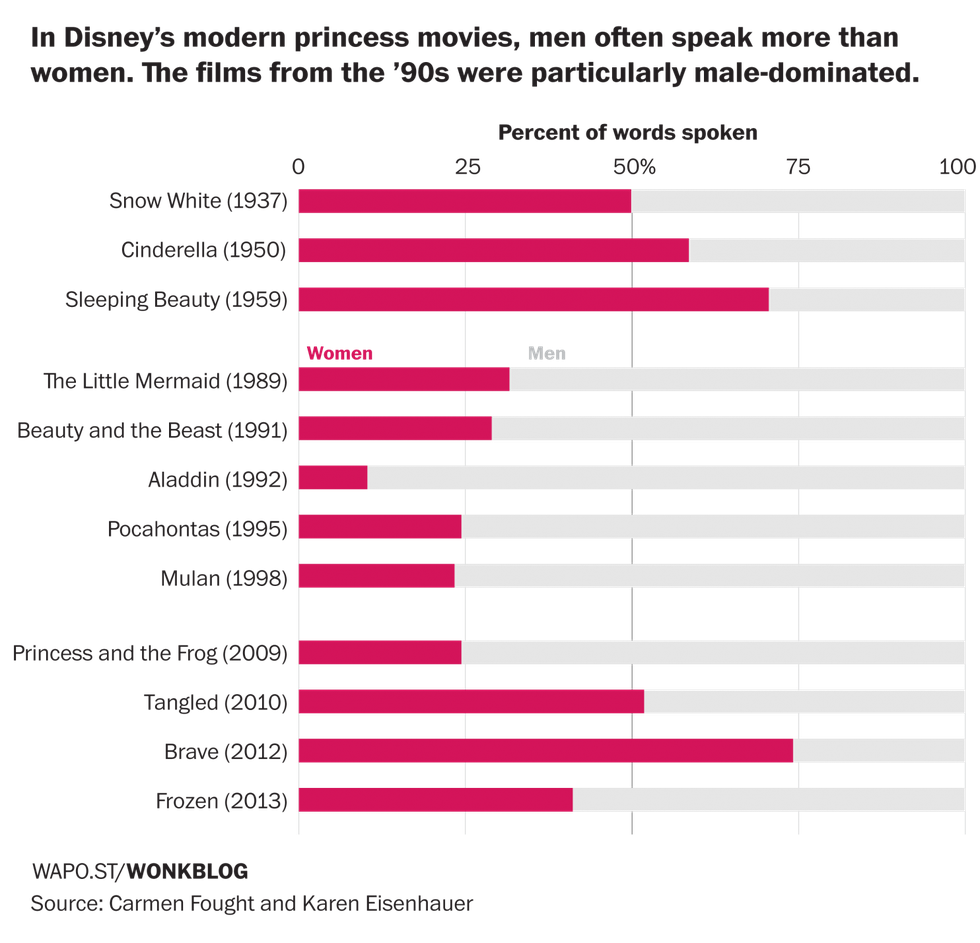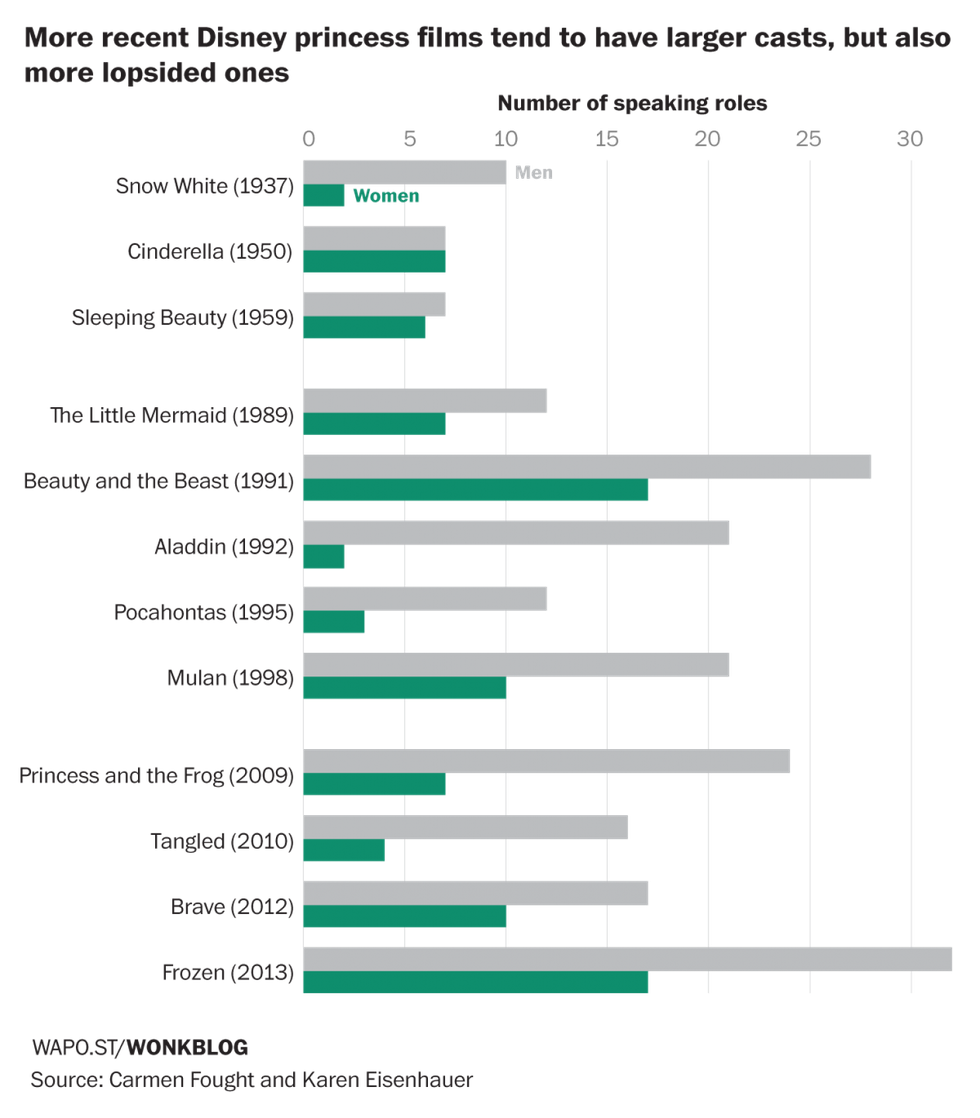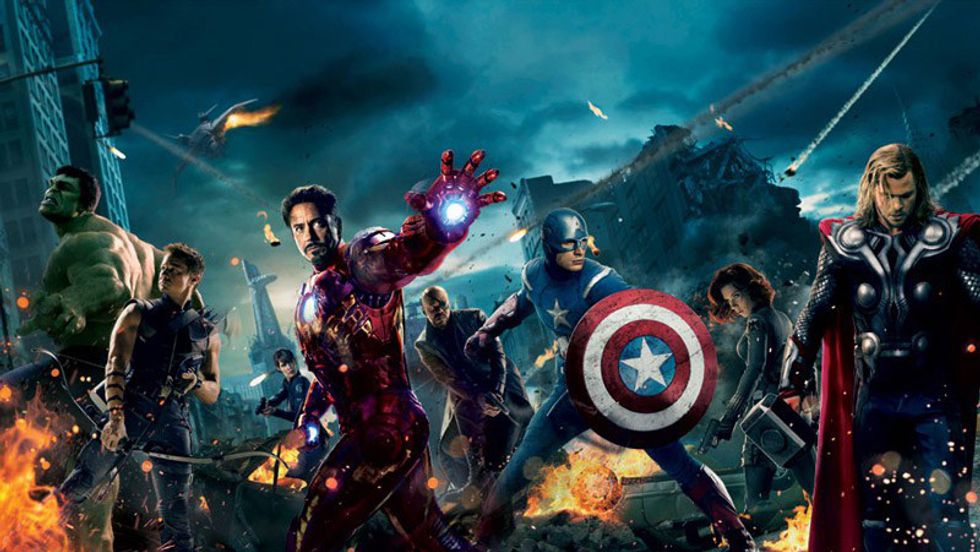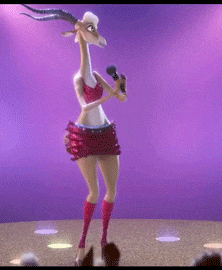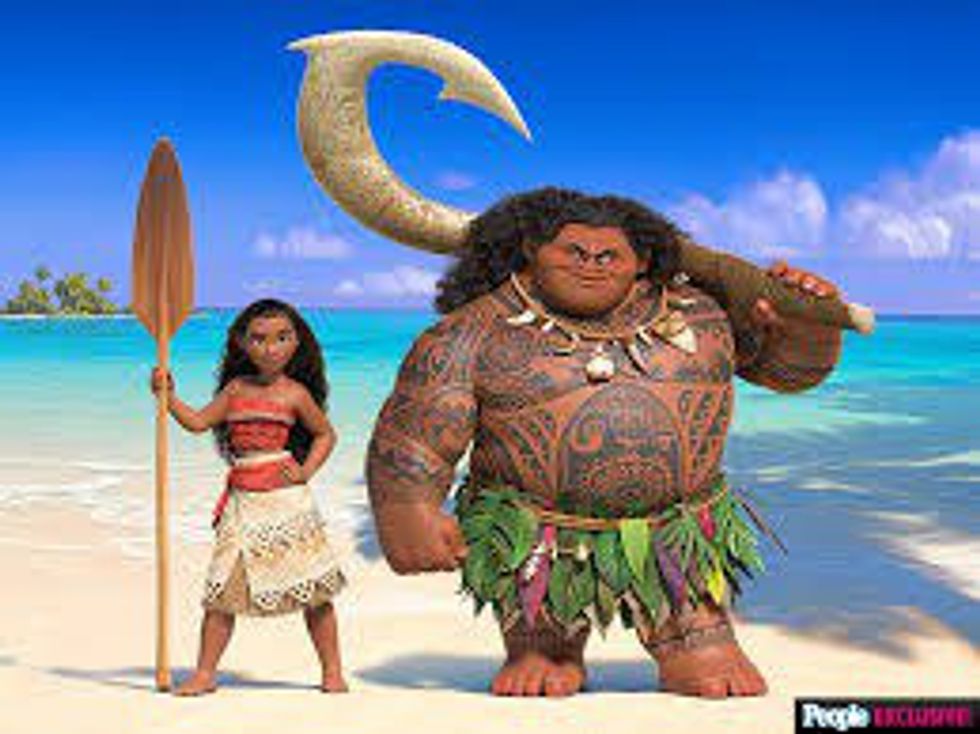First off, "Zootopia" is amazing, and if you haven't seen it, you should go out and see it right now. I mean it. It deals with racism and sexism beautifully.
Speaking of how it deals with such topics, let's take a look about 30 seconds into this trailer:
"I'm not just some token bunny."
Those words are pretty powerful. In case you haven't heard this term used this way before, tokenism is a term often used when dissecting how race, ethnicity, disability, among others, are represented. Merriam-Webster defines tokenism as "the practice of doing something (such as hiring a person who belongs to a minority group) only to prevent criticism and give the appearance that people are being treated fairly."
While tokenism is an expansive problem that intersects with many different social justice issues, I'm limiting the scope of this article to simply gender representation in media.
At first glance, one might think any Disney animated movie would easily fly above tokenism in terms of gender, as it's known for its princess movies. After all, a princess movie means the main character is a female, right? So there, problem solved!
Eh, not quite. This analysis has actually been done before.
Let's start with "Frozen." It's about two sisters, so there's a great start right there. But then... really, the only other female I can think of it is their mother and the troll who calls Sven and Kristoff "cuties" and says that she wants to keep them. Oh, and Kristoff encounters a man and a woman when he drops off Anna at the castle. But that's about it.
As for males, I can think of plenty: Kristoff, Hans, Sven, Grand Pabby, Olaf, Duke of Westleton, the Duke's two goons, the King and Oaken ("big summer blowout" guy). Oops. When you look too closely, you realize Arendelle seems to have a serious gender problem.
How do other Disney movies stack up? Well, one way of judging it could be by how many lines female and male characters each speak. Linguists Carmen Fought and Karen Eisenhauer have studied this, and this graph is a great visual comparison:
Sleeping Beauty's fairy godmothers and Maleficent manage to dominate, as well as the mother-daughter interactions in "Brave." Other than that, only three other Disney princess movies give women even half of the lines.
The same study also breaks it down by number of speaking roles:
Here, only "Cinderella" appears to break even. "Aladdin" is particularly sad considering Princess Jasmine's seemingly large role in the film.
It sure feels like even though these princesses are main characters, a lot of them may just be "token princesses" surrounded by the heroic male princes, lobsters, dragons, genies, and other male creatures.
And while we're at it, let's look for women of color. We have precisely one black woman, one Asian woman, and one Native American woman on the list above (you could also include Jasmine, who is not the title character of her movie). And for each of them, aspects of their ethnicity were pointed out. Contrast that to, say, "The Little Mermaid," of which is mostly understood to be a "Denmark movie" because the original tale's author was from Denmark, even though there don't seem to be any signs pointing to this in the movie itself.
So, yes, Disney has definitely had a tokenism problem in its princess movies. And veering into Marvel territory only makes the issue worse and more apparent.
Oh my gosh, one actual woman in this! And I guess at least green people are getting some representation?
So this brings us to "Zootopia," starring the refusing-to-be-a-token-bunny Officer Judy Hopps (Ginnifer Goodwin). Based on Judy Hopps' statement on not being a token rabbit, it looks like Disney has realized it has a problem. It's still a bit perturbing that, other than Judy, there are only a few other important characters played by women. Bellwether (Jenny Slate), the sheep assistant mayor, plays a key role in the film. Other than that, we have a few smaller roles: Judy's mother (Bonnie Hunt), Mr. Big's daughter Fru Fru (Leah Latham), and Mrs. Otterton (Octavia Spencer).
Oh, and who can forget this memorable role played by Shakira?
As far as male roles go, feel free to check out Zootopia's IMDb page. There's no shortage of roles for men here. It's certainly not as bad as other Disney movies when it comes to representation. And to give them some credit, some of the male heaviness is very much intentional, playing on our stereotypes in order to break them. For example, in order to set up the line about Judy Hopps feeling tokenized, the entire police department of "Zootopia" is male. And when looking at some of the voice actors, they actually have a few people of color.
It's definitely a step in the right direction. And directly addressing the issue in the movie itself is a powerful statement. And based on the next movie Disney has planned, it looks like Disney is headed for a more diverse line-up of ethnicities.
I sincerely hope this means Disney will do right with "Moana" and make her not feel like a token woman of color. No one should ever have to feel tokenized, whether it's as a token bunny, or any other box someone might try to confine you to.




